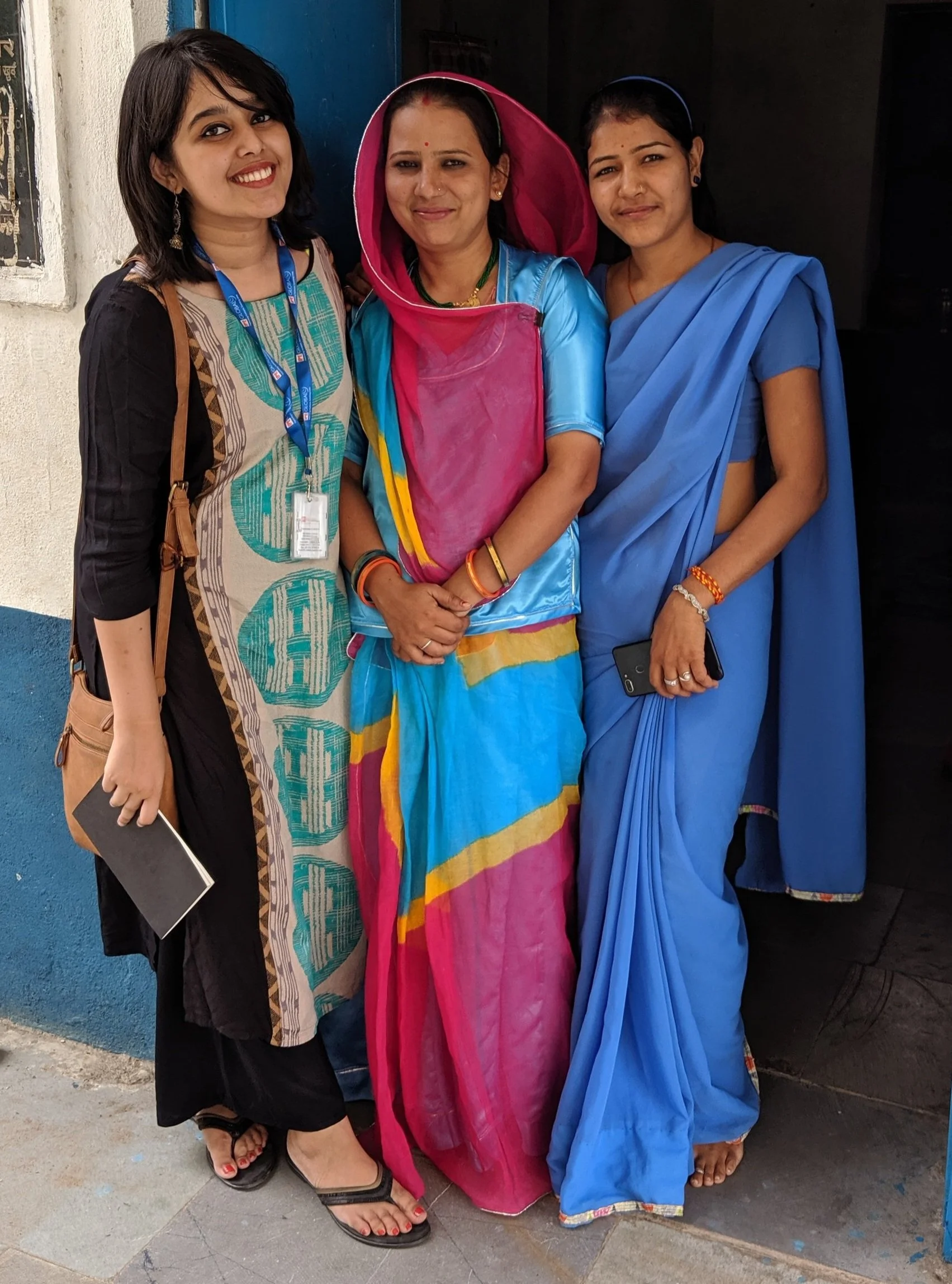Empowering through Evidence: Working at UNICEF as an Oxford-WHT Alumna
Rai Sengupta, WHT Alumna 2022, on her first UNICEF evaluation in Myanmar in 2020
Five years ago, I flew to Myanmar on my first UNICEF mission. I was fresh out of college, eager, enthusiastic, and still in disbelief about the opportunity I had received. Back then, I was working in my first job at a development consulting firm in New Delhi, and we had been commissioned to conduct an evaluation of a national maternal and child cash transfer programme in Myanmar by UNICEF. At the age of 22, this was my first exposure to the world of evaluations.
I remember the feeling of exhilaration as I stepped off the plane in Yangon, ready to present our evaluation findings to government stakeholders and development partners in the country, in partnership with colleagues from UNICEF Myanmar. A visual from the final workshop remains vivid in my mind: UN colleagues, development partners, policy makers, health workers, and midwives from various parts of the country sitting in the workshop room with headphones that facilitated simultaneous translation, listening to the evaluation findings. These stakeholders may have come from diverse backgrounds and spoken different languages, but they were bound by their mutual passion to protect and improve the lives of children in Myanmar.
It was a mission that made me realize the critical nature of evaluation in shaping human lives and realities: robust evidence is the bedrock of sound development programming. I left feeling deeply inspired by the work of UNICEF Myanmar and equally humbled by the power of evaluation evidence in impacting millions of women and children. In that moment, I knew that I wanted to work in this space for life.
Rai Sengupta during a field visit to Rajasthan, India, standing with front line health care workers who work to improve nutritional outcomes for women and children in their villages.
In the years to follow, I dedicated my career to using evidence to improve the lives of women and children. During the height of the pandemic, I supported the Government of India in evaluating India's women and child development portfolio. To foster outcome measurement and evaluation, I worked with the Ministry of Women and Child Development in India to develop the initial blueprints of India’s National Child Index. My passion for evaluations – instilled through my first UNICEF evaluation in Myanmar – also prompted me to design and deliver pro-bono workshops on evaluation research to over 3000 students and aspiring policy analysts in India.
While these practical experiences built my technical skills and sectoral expertise in evaluation, I received my formal academic training in evaluation research only when I came to pursue the MSc in Evidence-Based Social Intervention and Policy Evaluation (EBSIPE) programme at the University of Oxford in 2021. My time at Oxford was generously funded by the Weidenfeld Hoffmann Trust (WHT) Scholarship, without which it would have remained a distant dream.
The one year I spent at Oxford gave me so much: a robust academic grounding in evaluation research, tools, and methods from my course – but equally importantly, a leadership training par excellence through the WHT Scholarship. In fact, the WHT Scholarship was so many elements all at once – a moral compass for navigating leadership ethically, a sandbox for developing entrepreneurial ideas, a meeting space for intellectual partnerships, and a family-like community that celebrated diversity and multi-culturalism. In many ways, the WHT Scholarship felt like the microcosm of a multilateral institution - providing the space for representation from various countries and regions, offering platforms for developing solutions to global problems, and creating opportunities for partnership and dialogue on critical issues.
At Oxford, while pursuing my MSc, I wrote my thesis on gender-based violence and contributed to parenting intervention research for the Parenting for Lifelong Health. Subsequently, I worked in development consulting for two years in London – evaluating a gender-based violence programme in Zimbabwe, researching an adolescent health intervention in Ghana, and developing a parenting support strategy in Tanzania. Each experience renewed my commitment to empower women and children through evidence.
Rai Sengupta, on a mission to Ghana for an adolescent health project
Rai Sengupta, while working at Invest India and managing a research desk for India's Ministry of Women and Child Development
In October 2024, I received the opportunity to join UNICEF and to work in the UNICEF Evaluation Office based in the United Nations Headquarters. In my current role, I support the evaluations of UNICEF’s programming globally in three pivotal areas: child health and nutrition, child protection, and climate change and WASH.
Working at the United Nations feels like a full-circle moment after my first UNICEF evaluation 5 years ago. While my Oxford degree in policy evaluation has prepared me for this role, the values and principles instilled through the WHT Scholarship’s Leadership Programme have contributed significantly to making this career move possible. As I navigate my new role at the United Nations, I often refer to my ‘WHT toolkit’ – a stronger moral compass, a deeper sense of public service, a keener appreciation of innovation, respect for different ideas and cultures, and the outlook that sees the world as one’s own family.
The last year has been a devastating year for children across the world - as they continue to face heightened risks from war, climate change, and displacement. In working at UNICEF, I hope to do my (very small) part in securing rights, ensuring protections, and fostering development – #ForEveryChild.





